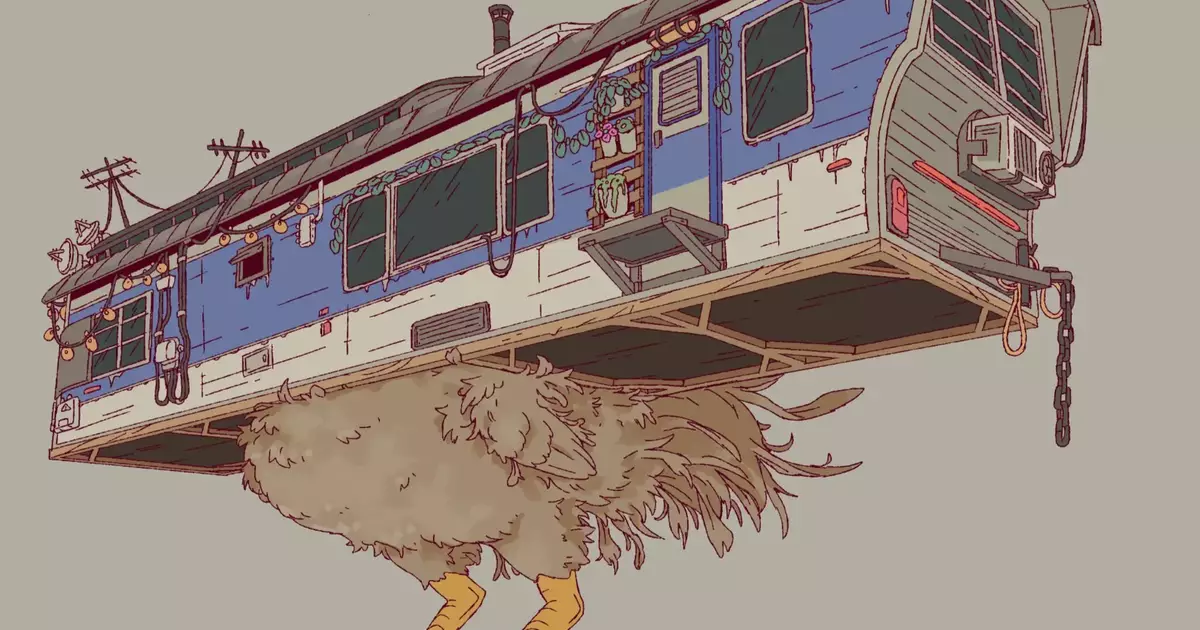What happens when the mundane world of nature documentaries collides with the whimsical realms of animation and gaming? This question lies at the heart of Giant Sparrow’s upcoming project. Building upon the themes of their critically acclaimed game, “What Remains of Edith Finch,” the studio seems poised to expand into a new universe that converges the haunting with the humorous, the real with the fantastical.
A New Venture: Blending Genres and Perspectives
Giant Sparrow has carved a niche for itself in the gaming industry, most famously with “What Remains of Edith Finch,” a game steeped in rich storytelling that reflects the melancholy and complexity of a cursed family. In their next endeavor, the developer is shifting its focus from the deeply personal tales of tragedy to the broader, bizarre narratives found in the realm of nature. This fresh venture, tentatively titled “Heron,” will serve as an anthology of experiences centered on a field biologist exploring the intricacies of organic life, punctuated by an array of imaginative elements, including chicken-legged houses.
Drawing inspiration from a blend of sources—ranging from revered classics such as “Ico” and “Spirited Away” to the immersive visuals of David Attenborough’s documentaries—Giant Sparrow aims to reimagine our understanding of nature. This creative amalgamation of influences hints at a narrative experience marked by whimsy, yet imbued with a deeper commentary on how we perceive the natural world.
While nature documentaries have captivated audiences for decades, they are not without criticism. Ian Dallas, the founder of Giant Sparrow, has expressed disappointment in their often superficial execution. In a world bustling with vivid life, he perceives a tendency for these films to gloss over the peculiarities and messiness intrinsic to living organisms. As a response, “Heron” aims to transcend the confines of traditional documentary storytelling, prompting players to engage with nature in a more profound, reflective manner.
Dallas’s aspirations for the game include steering clear of familiar tropes found in conventional nature-themed games—tasks such as collecting items or completing bland mini-games. Instead, the developers are keen on infusing the gameplay with an element of surreal humor. The quirky concept art hints at a kaleidoscope of fantastical creatures and environments that challenge our conventional understanding of biology. The incorporation of elements that may initially appear absurd—like chickens that have confused themselves with mobile homes—invites players to explore the world with an imaginative flair.
At the core of “Heron” lies a pursuit of playful exploration. Dallas has expressed the desire to create a game world that defies predictability and invites curiosity. This progressive philosophy pushes against the boundaries of conventional game design that often feels rigid and engineered solely around player capabilities. Instead, “Heron” proposes an expansive landscape where interactions are nuanced and unpredictable—where you might coax a giraffe into a particular position to achieve an unusual goal.
Moreover, the game’s design integrates an element of horror that arises from the uncanny nature of the creatures players encounter. Dallas notes the disturbing beauty inherent in the natural world—like the densely crowded movements of a caterpillar. Such visceral experiences are not merely included for shock value; they encourage players to confront their own reactions to the bizarre intricacies of life.
The Broader Implications of Nature in Gaming
As this project unravels, one cannot help but wonder how it will approach the complexities of portraying nonhuman creatures. Will the animals be viewed passively, serving merely as subjects in the player’s exploration? Or will the game challenge players to engage with them meaningfully, prompting a dialogue about their role in the ecosystem? These unanswered questions enrich the discourse surrounding gaming narratives and encourage reflection on how we perceive other life forms.
In the era of environmentally conscious storytelling, “Heron” presents the potential to interrogate not only the biological marvels of existence but also the conceptual frameworks we impose on them. The developers aspire to awaken an appreciation for the strangeness of life, combining it with a new ‘weird’ aesthetic that echoes the writing of authors like Jeff VanderMeer.
Giant Sparrow’s forthcoming project promises to be a unique exploration of life’s uncanny nature. By melding the whimsical with the profound, “Heron” invites players to navigate a world where the ordinary meets the extraordinary, fostering a sense of curiosity and wonder. As the excitement for this game builds, the anticipation for what lies within this imaginative journey becomes palpable.

